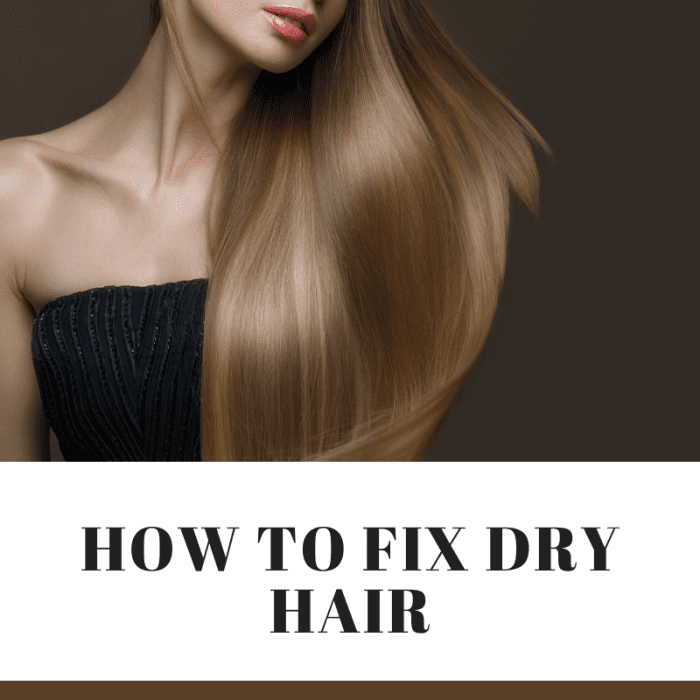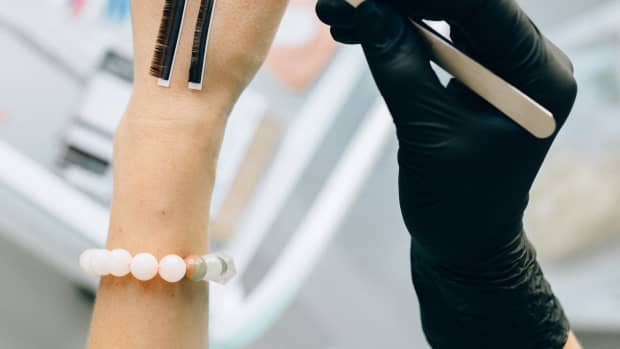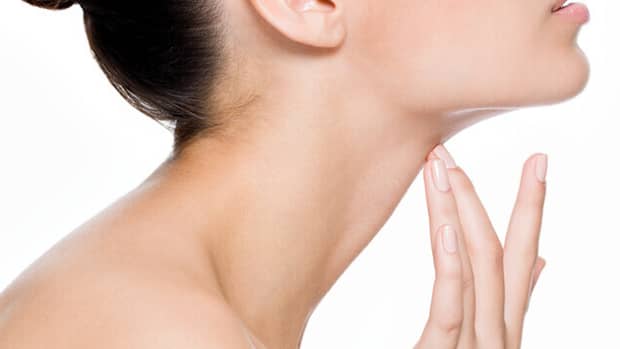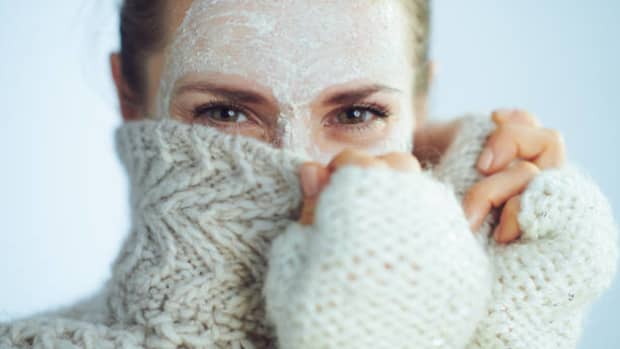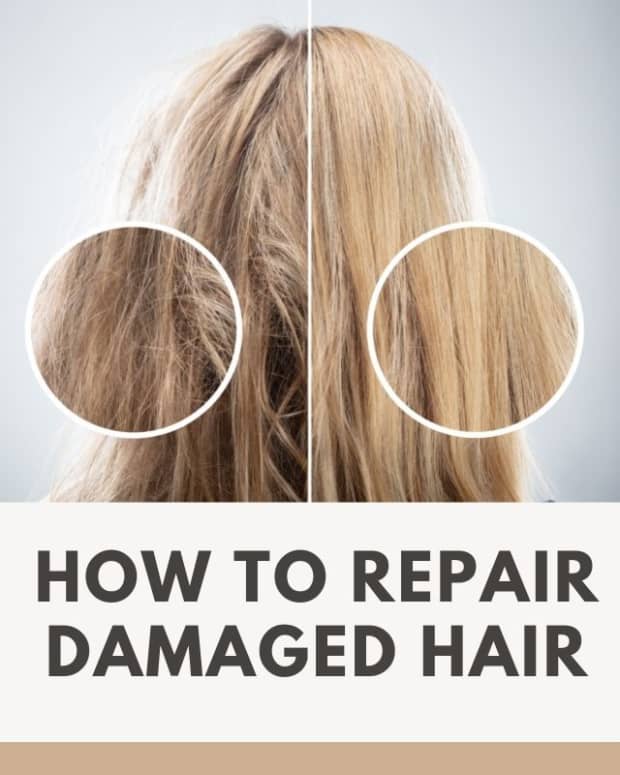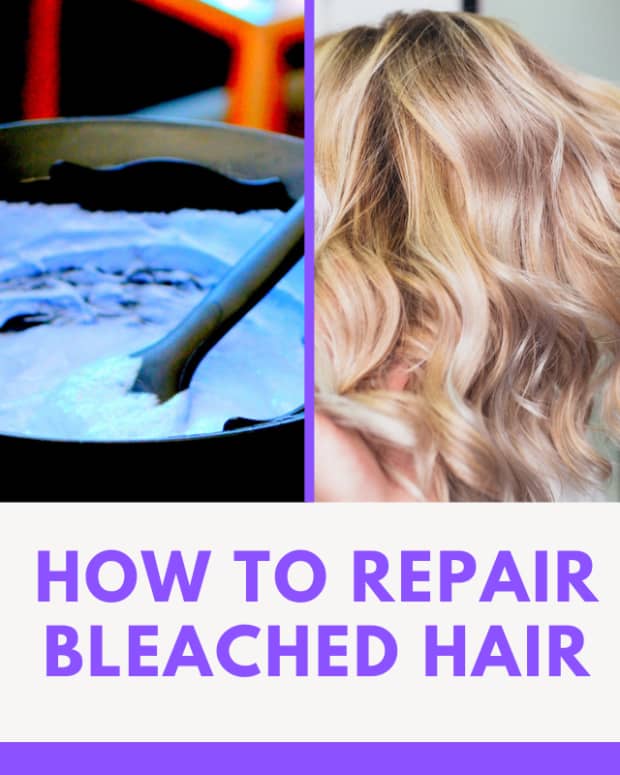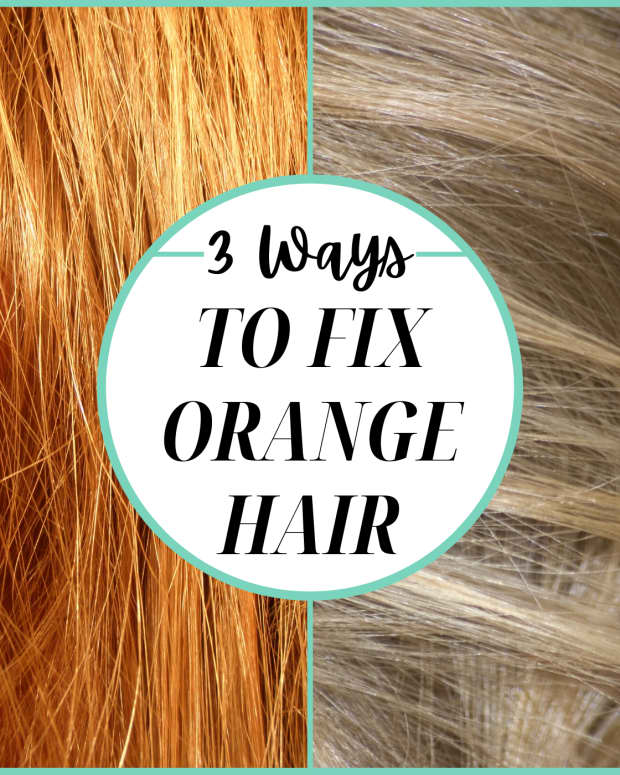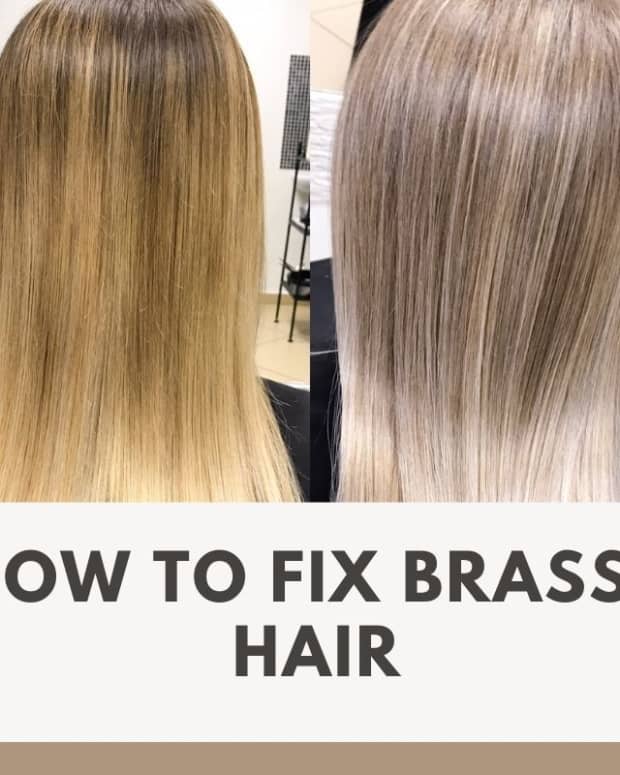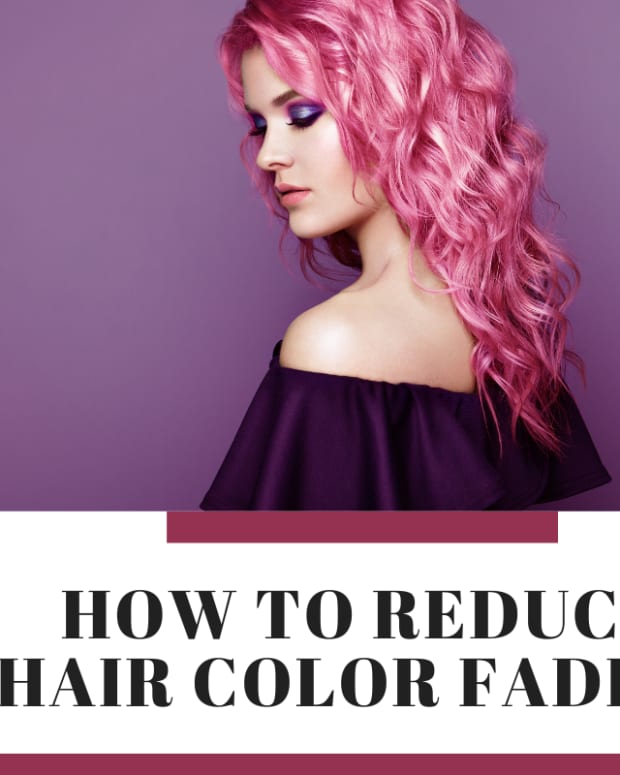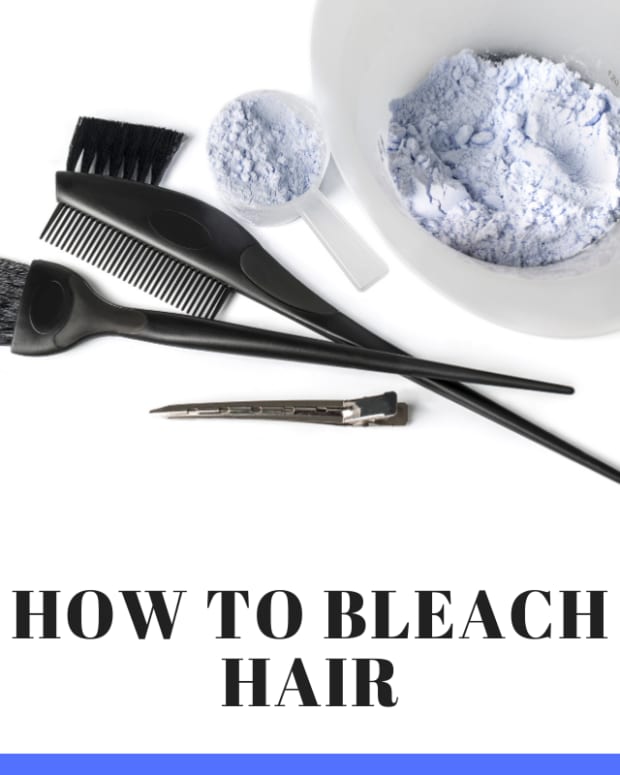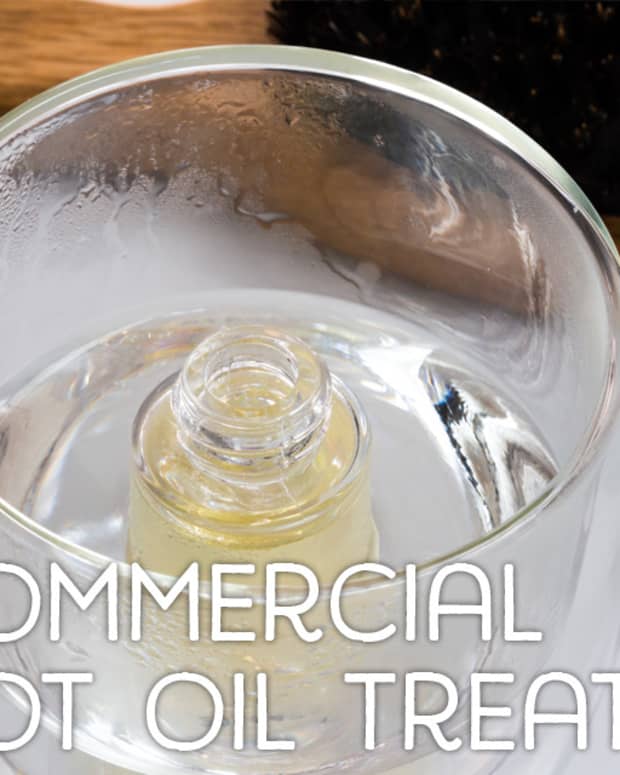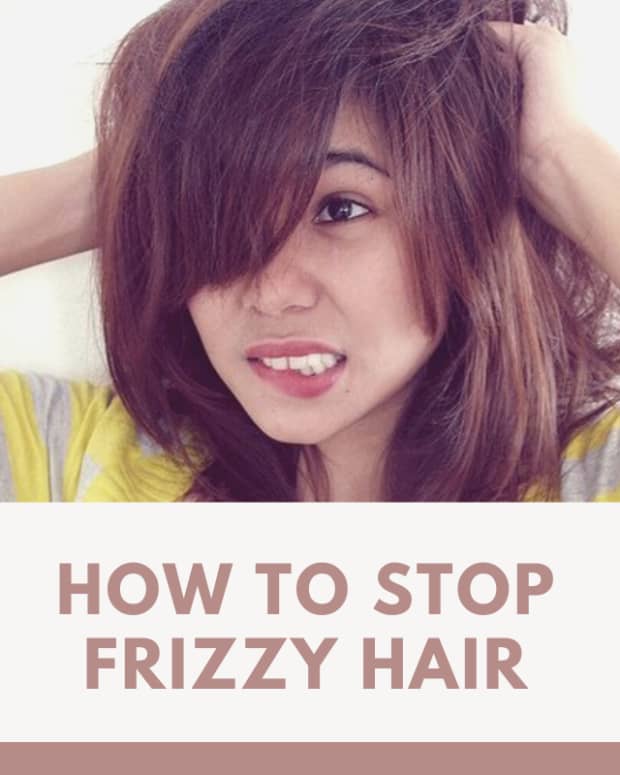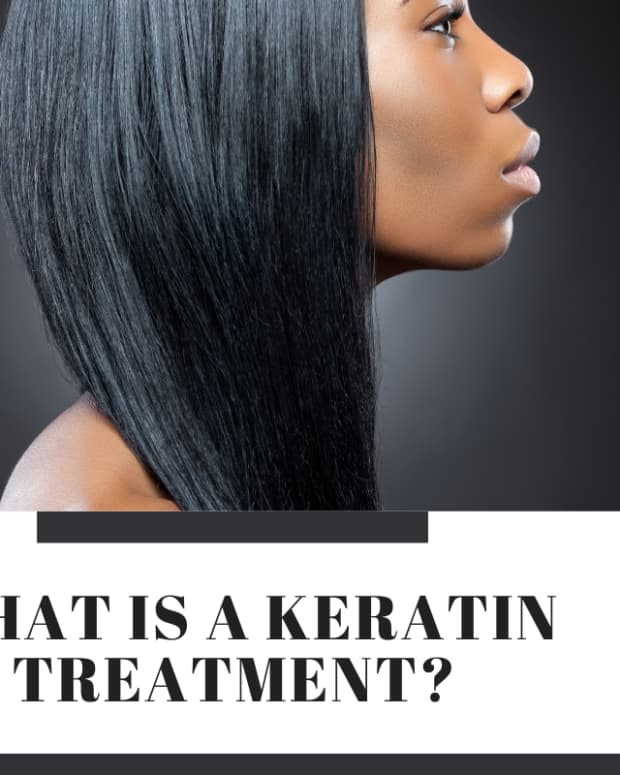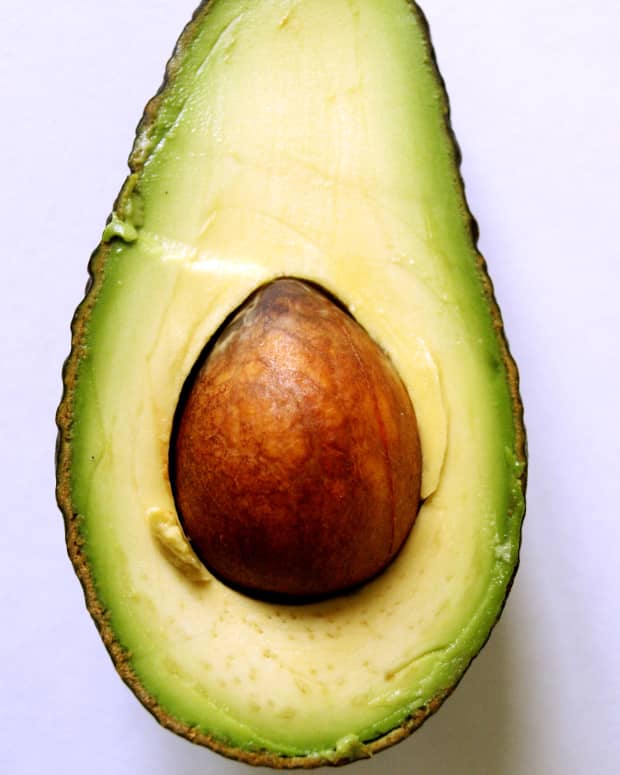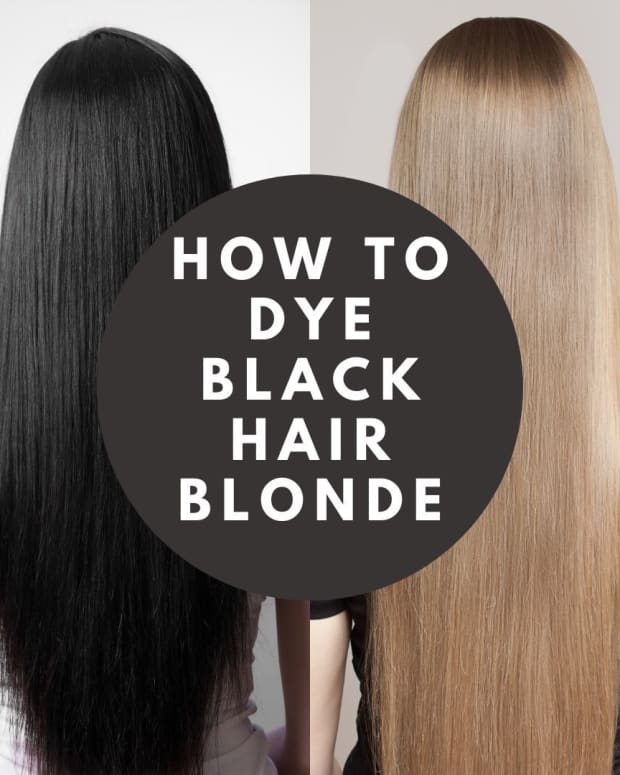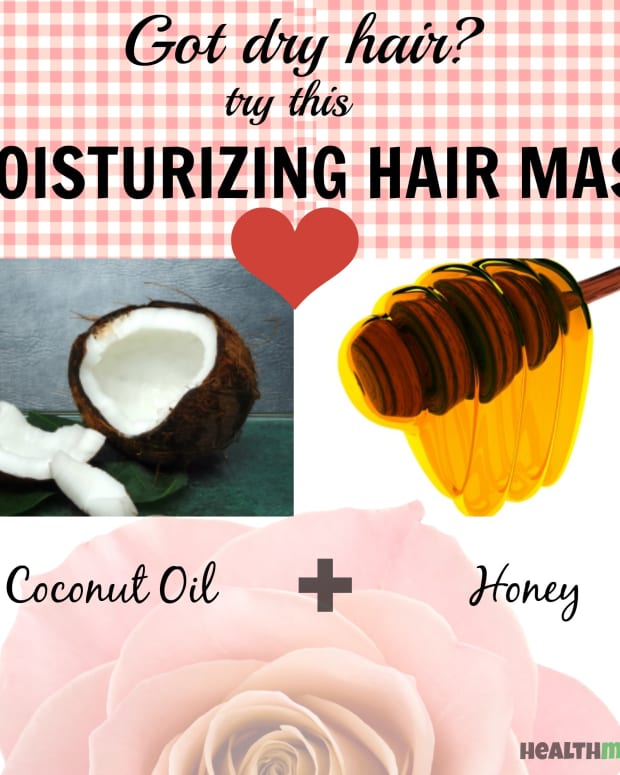How to Fix Dry Hair
Maffew is a hairdresser, marketer, and dabbler in many things who enjoys sharing knowledge about the science of hair coloring and hair care.
Dry hair is a common problem that can occur due to many reasons and this affects how it is treated. Treatments for one cause won't necessarily improve the hydration of your hair if your dryness is the result of a different cause, making it important to understand what is contributing to the condition of your hair to fix it.
By assessing your hair and giving it the care it needs, you can ensure it feels silky and smooth at all times.
Causes
The causes of dry hair are numerous, and you may be experiencing more than one. Some of the major problems include:
- Damage
- Washing your hair too much
- Failing to condition your hair properly
- Heat-styling
- Use of hair products containing alcohols
- A lack of natural oil production
Hair Damage
Damaged hair is prone to dryness because the structural integrity is weakened and cuticles that line the surface of each hair become jagged or outright destroyed. Damage to the structure of the hair affects the protein and bonds within the hair, preventing it from holding moisture in the correct areas for optimal elasticity, while damaged cuticles prevent your hair from sealing properly and give a rough texture to the surface.
In most cases, if your hair is only mildly damaged, your dry hair is the result of cuticle damage and the structure will still be intact. Moderate or severe damage is affected by both, and this makes it more difficult to treat effectively. In either case, the more cuticle damage you have, the rougher, drier, and frizzier your hair will appear and it will also be less responsive to treatments.
To determine whether your dry hair is being caused by damage, you need to consider the kinds of chemical treatments you've subjected it to in the past, as well as how you style and care for it. If you've bleached, dyed, or relaxed your hair in the past, chances are that this is either one of or the sole contributing factor to your dryness.
Hair that is damaged will also snap more readily, may suffer from more split ends, and feels less smooth. If it stretches apart when pulled gently while wet, that is a sign of severe structural damage. You can use this test to gauge how much damage is present based on the elasticity loss.
Shampooing Your Hair Too Frequently
There is no hard rule for how often you should wash your hair because it's dependent on factors like your natural oil production, what products you use, and how dirty it gets. Over-washing is a significant cause of dry hair though, and this needs to be ruled out before you can determine anything else.
Unless your hair is naturally very oily, daily shampooing is too frequent. Most people benefit from washing their hair every second day instead, while you may even only have to wash it every third day if you don't produce a lot of oil. Try a different shampoo regime first to rule this out as the cause. Either shampoo less frequently for a week, or switch to a milder shampoo designed for dry hair.
One of the best indications that you're washing your hair too often or with a shampoo that is too strong is if your hair is dry the day of shampooing and then starts to settle down by the next day. This occurs because oils have been able to build up and moisturize the hair in this time, alleviating the dryness.

Assess your hair to determine what is causing your dryness. This will help you plan the right treatment regime to deal with it.
Lack of Conditioner
Your hair needs conditioning every time it is washed, and often even between those periods with other conditioning products like leave-ins if your hair isn't naturally oily. Dry hair may be the result of using a conditioner that is too weak, using it infrequently, or not using one at all.
Heat Styling
Styling your hair with heated appliances like straighteners can make it look great, but the high heat also dries your hair out. If you use tools like this, it is easy to determine if they are the root cause of dryness by avoiding their use for a period of time and seeing if the condition improves.
Hair Products
Hair products can also be the cause of dry hair, especially if they contain alcohol because this readily evaporates off your hair, taking moisture with it. Hairsprays are the worst offenders in this case and can dry your hair out a lot if you use too much of them.
Check the ingredients of each of your regular products and consider running a test period of no use to rule them out as causes of the dryness.
Natural Oil Production
Your hair is moisturized naturally with a waxy oil called sebum and the production of this can vary widely between different people. To determine whether you have naturally dry hair, assess your hair together with the condition of your skin and lips.
If you experience dryness in these areas too, this is a reliable sign that impaired oil production is to blame. Sometimes this can be the result of medical conditions, but it is also normal for some people to have less natural oil than others.
Read More From Bellatory
It's more likely to have a medical reason if it has changed suddenly or is occurring in combination with other symptoms. See your doctor if you think this is the case because it can be an early sign of conditions like hypothyroidism.

Curly hair like this is especially prone to dryness because natural oils don't travel down the hair as effectively. Brush daily to care for it properly.
Treatment
Once you've understood and identified the contributing factors, it's relatively easy to treat dry hair with products and a hair care regime that matches your needs. In cases where your hair dryness can't be fixed, it can still be minimized significantly.
Treatments for Every Situation
Even if you don't know what is causing your hair dryness, this isn't a major problem. You can still fix dry hair, but doing so is slightly less effective if you're unable to identify the root cause. There are several treatments that will work to reduce the dryness of your hair regardless of the cause.
Conditioner is the most important as it restores oils to your hair after washing and sets the foundation for other treatments. Ideally, you should use a high-quality, heavy conditioner if suffering from dry hair as this will help the most. Regular conditioner is only for regular hair and won't have a strong enough effect.
Another product that can be used to fix dry hair is a hot oil treatment. This is a very strong conditioning agent that can moisturize your hair significantly when used in place of your conditioner, but it should only be done a few times a week at most as the product can build up and cause your hair to look and feel too oily if you overuse it.
Leave-in conditioners and sealing treatments are some of the most effective products to use between washes to treat and prevent dry hair, as are hair serums and oils. To get the best results, use a high-quality serum like Redken All Soft on damp, towel-dried hair, then again on completely dried hair before styling.
Products like this help to moisturize your hair and will work no matter what the cause is, but you should aim to address the root cause of dryness if at all possible because doing so will produce the best result.
Shampoo Usage
If the way you wash your hair is a major cause of your hair dryness, you can address this by reducing how frequently you wash your hair, switching to a milder shampoo that is designed for dry hair, or both. Always follow up with a high-quality conditioner to ensure that you restore moisture to your hair after washing it.
In situations where you have oily hair but tend to suffer from dryness immediately after shampooing until those oils accumulate again, this method can lead to your hair feeling oily so it is better to wash your hair normally and use leave-in conditioner between washes to treat the dryness instead.
Styling
To fix dry hair caused by heat-styling doesn't require you to discontinue the use of your curling rod or straightening iron. You do need to use a heat-protectant product from now on, however. Consider also adding a serum or leave-in spray conditioner after styling as this will help to return any lost moisture caused by the heat.
Products
Avoid the use of any product containing alcohol if possible because products like this will strip moisture out and even exacerbate dryness caused by other factors. Products that you can use without issue include:
- Most alcohol-free hair products
- Hair serums
- Hair oils
- Conditioning agents
These kinds of products help to reduce existing dryness and help to prevent it from reoccurring by maintaining the correct moisture balance inside the hair.
Fix Damaged Hair
If you have any structural damage to your hair, this needs to be dealt with as a priority because it will make a huge difference to the condition of your hair. Damaged hair can be repaired with products like protein treatments, keratin treatments, and bond rebuilders, but there is no way to restore destroyed cuticles, unfortunately.
If you have severely damaged hair cuticles, this is simply something you need to tolerate until your hair eventually grows out. You can treat the problem symptomatically, however. To replicate the function of the cuticles, use a sealing treatment or hair serum after washing your hair and then again after styling.
Both of these kinds of products work to lock hydration inside the hair shaft and prevent it from escaping and leading to dryness.
- How to Repair Damaged Hair Properly
If you need more information about repairing your hair, you can find it here.
It feels great to have soft, beautiful hair and you don't need to tolerate dryness or rough texture in your own locks. By assessing the condition of your hair and adjusting your hair care routine to quash it at the source, you can fix dry hair and make it feel great again.
Have a question about the condition of your hair, or how to improve the way it feels? Leave a comment and share your insight with other readers.
© 2020 Maffew James

